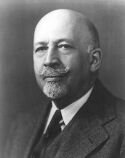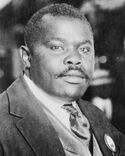List of Leaders of the Libertines
The Freedmen's Council
As part of the union of the the Republics of Freedland and Liberty into the Provisional Republic of the Libertines, and out of a need for co-ordinated leadership in the Libertine Revolution, the Freedmen's Council was formed. Made up of several free lawyers, merchants, and politicians the Freedmen’s Council was the committee of individuals who governed the Free Republic of the Libertines from the union of Freedland and Liberty in 1838 to the end of the Libertine Revolution in 1846 and the establishment of the Free Republic of the Libertines. The Council was officially led by a president, a role that rotated between the three, later six members of the Council. Initially numbering only three committee members or “Councilmen”, it expanded to six in 1840.
First Free Republic of the Libertines (1843-1934)
Upon the creation of the Free Republic of the Libertines and its full independence from both ... and Arcadia, the leadership of the country changed from a directory to a constitutional federal republic modelled on Arcadia's. The President of the Libertines would be indirectly elected to a four-year term by the voting populace of the Libertines, initially adult men who owned property, but later expanded to any man regardless of wealth and then anyone who had reached the voting age of eighteen. Despite there being no term limits when it came to the role of President, most Presidents ended their time in office after two terms out of tradition. John Jenkins Freeman, who was serving as President of the Freedmen’s Council, was elected as the first President of the Free Republic of the Libertines, narrowly defeating his rival Benjamin Priest in the country's first election. Freeman went on to serve as an independent for three terms. He was followed by Philip Blanche Gaines, who also ran as an independent. By the end of Gaines’ tenure, several political parties had formed, such as the Whig Party (later the Democratic Party) and the Liberal Party. These parties would supply many leaders of the Libertines until the 1934 Coup at the hands of Noah Stonewall’s National Renaissance Party, which dissolved the First Free Republic of the Libertines.
| No. | Name (Birth–Death) |
Portrait | Party | Term of office | Elections Won | |
|---|---|---|---|---|---|---|
| 1 | Joseph B. Freeman (1802-1878) |

|
Independent | 22 March 1844 |
16 October 1852 |
1844 1848 |
| 2 | Philip Blanche Gaines (1806–1862) |

|
Independent | 16 October 1852 |
16 October 1860 |
1852 1856 |
| 3 | Hiram F. Shepherd (1814-1899) |

|
Whig | 16 October 1860 |
16 October 1872 |
1860 1864 1868 |
| 4 | Chester L. LeRoy (1820-1875) |

|
Whig | 16 October 1872 |
3 May 1875 (Died in Office) |
1872 |
| 5 | Lemuel Smith (1821-1880) |

|
Whig | 3 May 1875 |
16 October 1876 |
N/A |
| 6 | Francis W. Johnson (1823-1890) |

|
Protectionist | 16 October 1876 |
16 October 1884 |
1876 1880 |
| 7 | Arthur J. Durand (1832-1920) |

|
Liberal | 16 October 1884 |
16 October 1896 |
1884 1888 1892 |
| 8 | George S. Saint (1854-1922) |

|
Liberal | 16 October 1896 |
16 October 1904 |
1896 1900 |
| 9 | Robert Louis Deperron (1857–1913) |

|
Whig | 16 October 1904 |
11 June 1913 (Died in Office) |
1904 1908 1912 |
| 10 | Alphonso Wallace (1856-1930) |

|
Whig | 11 June 1913 |
16 October 1916 |
N/A |
| 11 | Robert Getty (1873-1939) |
File:Jamesweldonjohnson.jpg | Liberal | 16 October 1916 |
16 October 1924 |
1916 1920 |
| 12 | Alain Lechhardt Thibodeaux (1867-1964) |

|
Land and Labour | 16 October 1924 |
16 October 1928 |
1924 |
| 13 | Noah Mauricanus Stonewall (1886–1940) |

|
National Renaissance | 16 October 1928 |
5 October 1932 |
1928 |
National State of the Libertines (1932-1939)
The constitutional federal republic that had come to define the Free Republic of the Libertines had slowly been dismantled by President Noah Stonewall of the National Renaissance Party. Making a public declaration on the 5th of October 1932 that socialists, Arcadians, and other powers had sought to usurp the government of the Libertines by rigging the upcoming elections, Noah Stonewall cancelled the elections and announced the creation of the National State of the Libertines, in which he would serve as dictator. Met with opposition by Arcadia and ..., Stonewall instigated several incidents against neighbouring Arcadia and ... in the hopes of taking back territory lost in the ... War of 1899. This instigation culminated in the Libertine War, a short but brutal conflict that led to the toppling of Stonewall and his government, and the restoration of the Free Republic of the Libertines.
| No. | Name (Birth–Death) |
Portrait | Party | Term of office | Elections Won | |
|---|---|---|---|---|---|---|
| 1 | Noah Mauricanus Stonewall (1886–1940) |

|
National Renaissance | 13 October 1932 |
18 January 1939 |
N/A |